
Why were there very few businesses
started or owned by women in 1900?
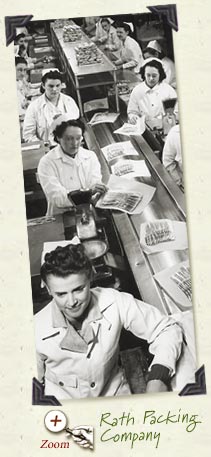 At this time women did not have the opportunities for work that women
do today. Women did not have equal rights with men. Married women
were usually expected to work in their homes but not in business and
industry. When women did work in industry it was often in a job that
was considered “women’s work” such as a garment
factory running a sewing machine.
At this time women did not have the opportunities for work that women
do today. Women did not have equal rights with men. Married women
were usually expected to work in their homes but not in business and
industry. When women did work in industry it was often in a job that
was considered “women’s work” such as a garment
factory running a sewing machine.
In this case many women would work together. Women would almost never
work side by side with men in a factory setting.
Women could not apply for most jobs. When unmarried women did get
work outside of their homes, they were often paid less than what men
received for the same work.
Why were women not considered equal
to men?
It wasn’t until the 19th Amendment to the U.S. Constitution
in 1920 that women won the right to vote. It was argued that women
didn’t want to vote, that they didn’t have the knowledge
to be informed voters or that they couldn’t serve in the military.
Women were thought to be weaker and incapable of performing leadership
roles. Women were valued in their homes, but not usually in public
life.
What kinds of work did most women do
at this time?
Most women worked in their home or another person’s home. Unmarried
women often worked as hired help in the home of another family. They
cleaned, cooked, ironed, canned, hauled water, washed clothes and
did everything that needed to be done in the home—often without
machines to make the work easier.
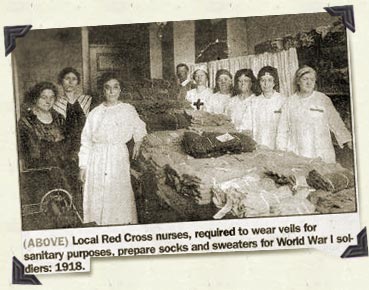
But many unmarried women taught school. This was one job outside
the home that provided women with opportunities for leadership. Being
a school teacher allowed women respect in their community. But if
a female teacher married she was expected to stop teaching.
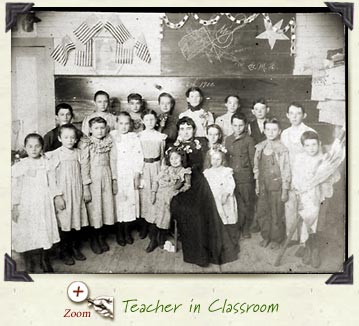
Some unmarried women found work in businesses such as the North Star
Egg Case Company in Waterloo.
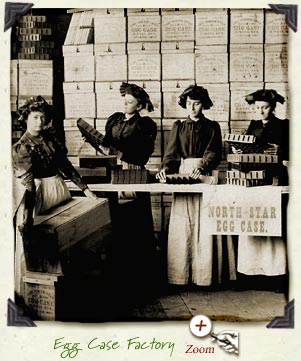
Later, unmarried women found work in businesses such as the Waterloo
Courier.
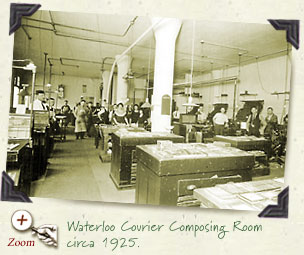

|



